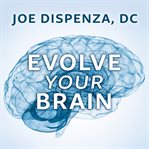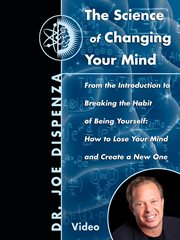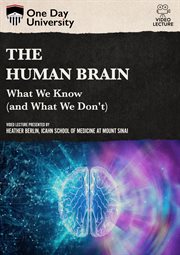Review by Library Journal Review
In this exploration of the nature of the mind, neuroscientist Beauregard (psychology & radiology, Univ. of Montreal; coauthor, The Spiritual Brain: A Neuroscientist's Case for the Existence of the Soul) covers a wide range of topics including placebos (and nocebos), neurofeedback, neuroplasticity, psychoneuroimmunology, hypnosis, psi (e.g., extrasensory perception and psychokinesis), near death and mystical experiences, and quantum physics. The 1990s were "the decade of the brain," he writes, and neuroscience remains one of the few largely unexplored scientific frontiers. Discussing imaging technologies, such as functional MRIs, that can noninvasively measure brain activity in new and exciting ways, Beauregard suggests that today's science fiction may become tomorrow's science, particularly in the field of biology. His book makes clear that, in the profound relationship between mind and body, there is a great deal about both that nobody yet knows. VERDICT Provocative and accessible, this book is ultimately less about hard science and more about the mind-body problem and philosophy of materialistic science. It will be of interest to readers of Andrew Newberg's How God Changes Your Brain.-Mary Chitty, Cambridge Healthtech Lib., Needham, MA (c) Copyright 2012. Library Journals LLC, a wholly owned subsidiary of Media Source, Inc. No redistribution permitted.
(c) Copyright Library Journals LLC, a wholly owned subsidiary of Media Source, Inc. No redistribution permitted.
Review by Kirkus Book Review
A neuropsychologist argues that the time has come for "an expanded model of reality" that takes into account the separation of mind and consciousness from the brain. Beauregard (The Spiritual Brain: A Neuroscientist's Case for the Existence of the Soul, 2008, etc.), an associate researcher at the University of Montreal, cites examples to set the stage for his conviction that "mind and consciousness are not produced by the brain." He gives examples of the placebo effect and the use of neurofeedback to train the mind to control brain functions, and he rejects efforts to map areas of the brain to mental functions by the use of electrical stimulation and other methods--he deems these to be reductionist. To support his contention of the primacy of mind over matter, Beauregard describes the apparent effectiveness of black magic on victims who believe in the power of spells. More controversial are his contentions about extrasensory perception. He reports examples of out-of-body and near-death experiences, which he interprets as proof of the existence of the soul and its life after death. He also discusses clairvoyance and precognition; he writes, "no current theories in physics, psychology, or neuroscience can explain them convincingly." In the author's view, a scientific paradigm shift is on the horizon, and he states what he claims to be definitive proof that under certain conditions "telepathy does occur." He cites an experiment in which participants in different rooms were shown the same four pictures. One made a selection and the other guessed which one was selected. In one third of the instances, the second participant chose the correct picture, beating the "odds against chance beyond a million billion to one." He does not entertain the possibility that the experimental design was flawed. Proponents of the author's new-age beliefs will be intrigued; others will be more skeptical.]] Copyright Kirkus Reviews, used with permission.
Copyright (c) Kirkus Reviews, used with permission.



